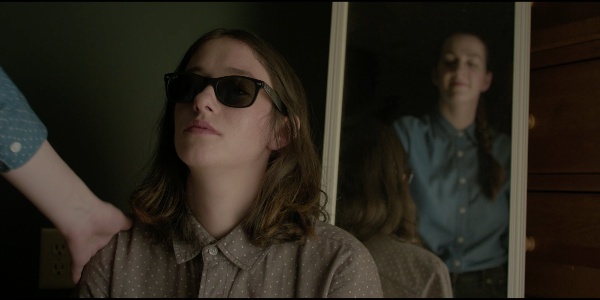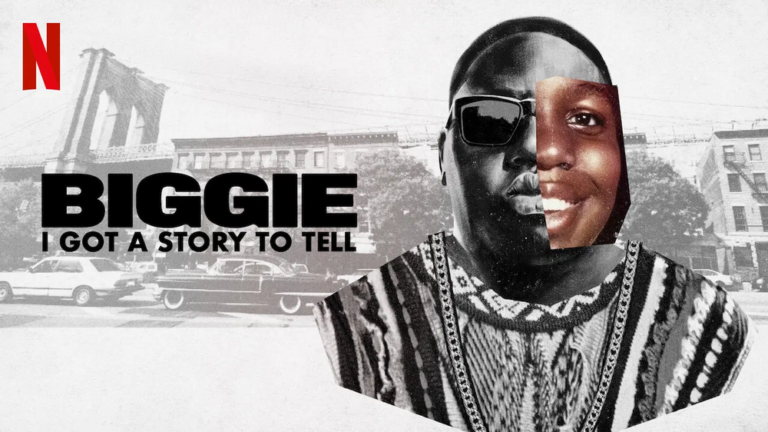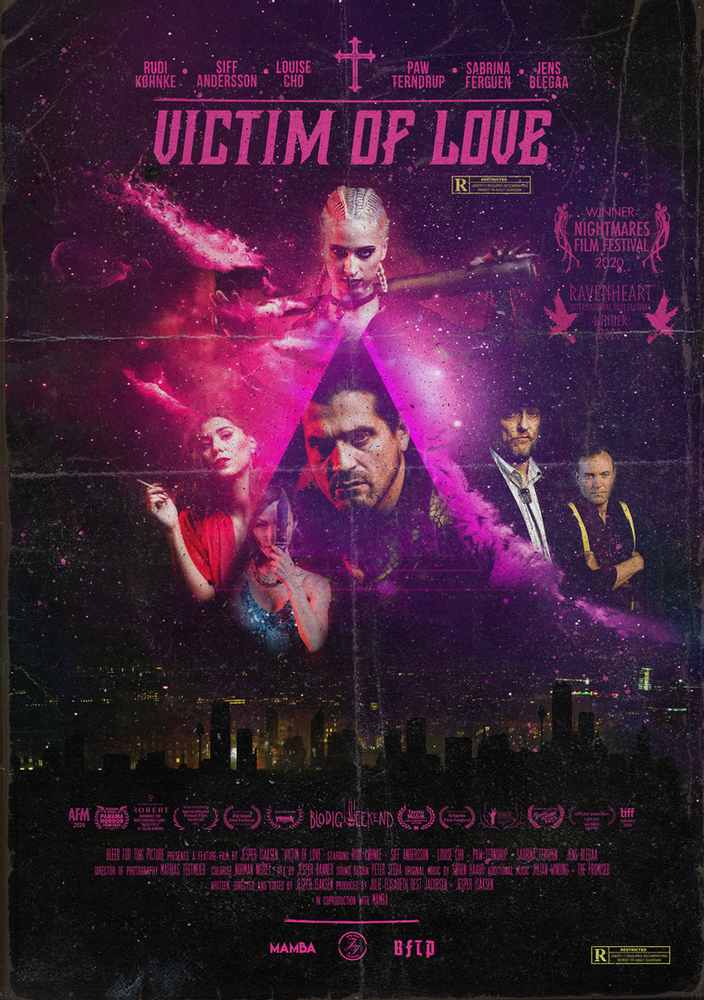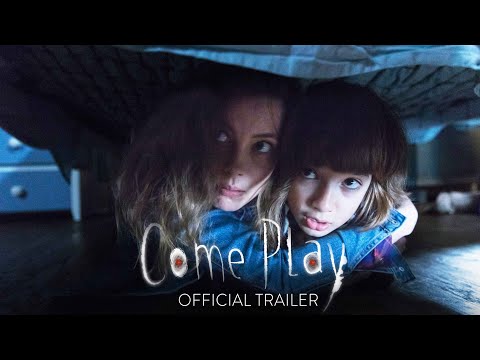SILENCE & DARKNESS: An Unnerving Tale Of Familial Digression
The television goes from an old tape of a gymnast graciously contorting her body to the raspy, instantly recognisable voice of Bob Dylan as he soulfully sings “It’s Alright, Ma (I’m Only Bleeding)”. “To keep it in your mind and not forget, that it is not he, or she, or them, or it that you belong to”. Dylan’s raging anti-capitalism anthem, a bold, eloquent critique to the failed politics of the 70s finds its home in the two young women sitting in front of the old television set.
Anna (Mina Walker) is blind and Beth (Joan Glackin), deaf. They communicate through touch, their hands moving with the promptness of years of intimate practice. Inside their isolated country house, the sisters perform a synchronised dance, inseparable as they go from playing on their front lawn to cooking dinner. When days near an end, their father (Jordan Lage), the town’s doctor, arrives just in time to have dinner at an impeccably set table, the girls eager to hear about his day – his words their only true glimpse into the outside world.

After a frantic visit from a neighbour, the somewhat idyllic life led by the girls is disturbed by growing suspicions of their father. No longer are Anna and Beth comfortable with the man’s behaviour, his sheltering feeling more and more claustrophobic by the minute. From then on, peaceful dinners become scarce and life is idyllic no more.
A tale of familial digression
From its very first beat, Silence & Darkness is filled with a lingering sense of distress. Heavily echoing the likes of Yorgos Lanthimos, director Barak Barkan’s feature debut subverts familial bonds to instigate an unsettling feeling of imminent digression. As the father bathes his two grown daughters, it’s impossible not to flashback to Lanthimos’ incestuous Dogtooth, the same voyeuristic eye employed to amp suggestion.

The thriller, however, feels at times overly derivative, its central concept feeding from ideas seen time and time again. By adding disability to the table, Barkan reaches for a freshness that never truly comes and, instead, adds to his plate an element of representation that is unfulfilled by his choice of an entirely able cast. Horror is a genre well-known for often employing disability as a catalyst, fear stemming from what we can’t see, what we can’t hear, what we can’t run from. Here, however, instead of fueling the central concept, all narrative efforts revolve around disability itself, with Barkan digging deeper and deeper into it.
The laurels of the sisters’ relationship
There are, nonetheless, merits to Silence & Darkness, its main triumph being the relationship between Anna and Beth. The two sisters are deeply connected, their co-dependence a way itself into independence. Their bond is deep and yet never eerie, benefiting from a child-like naivete stemming from years of seclusion. As the young women start distancing themselves from their father, they move closer and closer to one another, almost merging. It is this incorruptible tie that deserves praise, it is quite a shame that – once it fully gains traction – the credits begin to roll.
What are some of your favourite slow-burning horror films? Tell us in the comments!
Silence & Darkness is currently available VOD!
Watch Silence & Darkness
Does content like this matter to you?
Become a Member and support film journalism. Unlock access to all of Film Inquiry`s great articles. Join a community of like-minded readers who are passionate about cinema – get access to our private members Network, give back to independent filmmakers, and more.
Join now!





